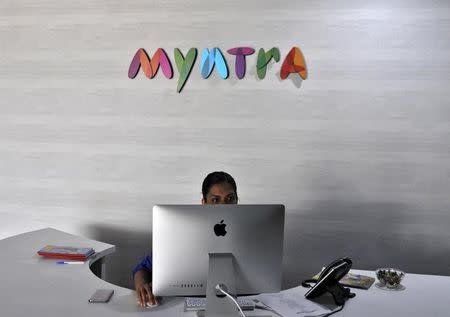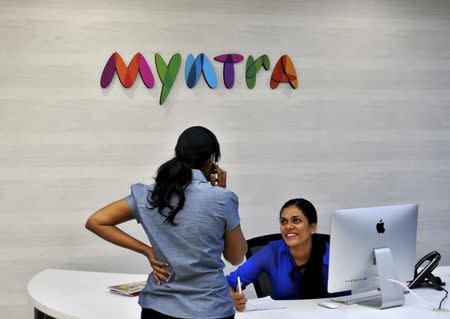Flipkart's Myntra unit expects to turn profitable in fiscal 2017
BANGALORE (Reuters) - Myntra, part of Indian's biggest e-commerce company Flipkart, said it expects to turn profitable by the end of next financial year as the online fashion store looks at slashing discounts and curbing supply-chain costs. Shopping online is becoming more popular in India due to the rising use of cheaper smartphones and India's e-commerce sector is expected to grow to $220 billion by 2025. However, fierce competition to win customers through deep discounting has led to mounting losses for Flipkart along with rivals Snapdeal and Amazon. Myntra now plans to reduce discounts by 3-4 percentage points and the company expects to lower the number of products that are discounted on its website. Myntra's 60 percent of revenue in the next financial year would come from products sold at full price up from 54 percent, the company's senior vice president of finance Prabhakar Sunder said. The company also expects to cut supply chain costs by 2 percentage points during the period. Bangalore-based Myntra, that was acquired by Flipkart in 2014, said it will cross $1 billion in gross merchandise value (GMV) for the financial year 2016-17 after achieving an annualised GMV of $800 million this month. (Reporting by Arathy S Nair, Writing by Himank Sharma; Editing by Anand Basu)

 Yahoo Finance
Yahoo Finance 

